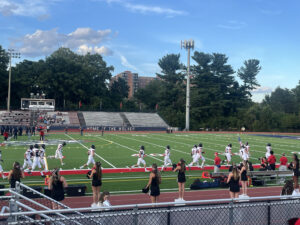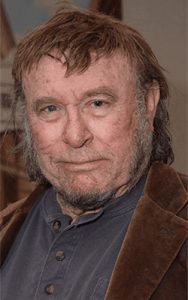By a vote of 5-2, the Falls Church City Council Monday night approved a first reading of a new ordinance that would facilitate the ability of City homeowners to build “accessory dwellings” on their property. The draft ordinance will now undergo a full range of presentations and vettings before City advisory boards and commissions, the public and organizations like the Chamber of Commerce before coming back for a final approval next April.
The five yes votes came from Mayor Letty Hardi, Vice Mayor Deborah Shantz-Hiscott, Marybeth Connelly (attending remotely), Justine Underhill and newly sworn-in member Laura Downs. No votes came from David Snyder and Erin Flynn.
The prospective new ordinance would bring Falls Church into line with similar measures already in effect by its neighbors in Arlington and Fairfax County. In Arlington, almost 20 times the size of Falls Church, since the approval of a similar new law, a mere 73 such units have been constructed. City officials here believe that with needed approvals, two or three such units a year can be expected to be built here.
But still, the issue drove an extensive public response at Monday’s City Council meeting reminiscent of the fight over changes to the City’s transitional zones policy that took two and a half years before being approved. This one, City officials anticipate, won’t take that long, although already a considerable amount of time and effort has gone into the effort, including two well-attended public information forums that were held recently.
In the City staff’s report, presented by Planning Department chief Paul Stoddard and senior planner Jack Trainor, the staff recommendation was for approval of the proposed ordinance. “The staff developed the dragft code amendments after considering national best practices, input from public meetings and City boards and commissions, input from four open house meetings and analysis of proposed state code impacts,” Stoddard said.
He added, “Regulations on accessory dwellings have been adjusted in some localities across the country as a tool for increasing housing availability and assisting property owners with housing costs while having limited impacts on community character or sense of place. Common uses for accessory dwellings include housing for extended family members or family members that need to live nearby, and providing a source of supplemental income for home owners.”
The staff report was supplemented by a written report from the American Association of Retired Persons (AARP) which stated that “accessory dwelling units (ADUs) are a needed housing option for people of all ages.”
“As small houses or apartments that exist on the same property lot as a single-family residence, accessory dwelling units play a major role in serving a national housing need,” the AARP piece states. “This transitional home type is reemerging as an affordable and feasible housing option that meets the needs of older adults and young families alike. A 2021 AARP survey of adults 18 and up found those who would consider creating an ADU in order of their stated importance: provide a home for a loved one in need of care, provide housing for relatives or friends, have a space for guests, create a place for a caregiver to stay, increase the value of their home, feel safer by having someone nearby and earn extra income from renting to a tenant.
In the Falls Church case, a lot of the heartburn so far has been due to minutiae, concerns for the exact footage of setbacks and tree canopies required, for example, ostensibly to be sensitive of the impact of such accessory dwellings on neighbors, and on concerns for the structures’ uses as short-term rentals, or “AirBandB” type uses.
While some opponents argued the benefit would only go to the wealthiest of the homeowners, Trainor noted that 56 percent of City single family homes would qualify to add such a unit under the proposed ordinance out of the approximately 2,500 homes in the City.
Of the 15 citizens who signed up to comment during the public comments period at the opening of the meeting this Monday, 11 came to speak on this one issue, although there were citizens on both sides, either pro, con, or with major concerns.
Among those who spoke against or with major concerns were former mayor Nader Baroukh, former vice mayor Marty Meserve, and recent Council candidate John Murphy. Proponents included former Economic Development Authority member Mike Novatny, who has created a company, Backyard Builders, to build such units in Arlington, Robert Kravinsky, Fred Thompson, Alex Mericola, Eric Bossen, Sam Butler, Pirouz Khanmalek and Rishi Nangia.













